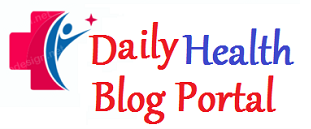ADHD is a challenging condition. Fortunately, with efficient working mechanisms, every person diagnosed with a disability can thrive in life. The patient can achieve this through timely diagnosis and sticking to treatment plans.
When the doctors confirm your worst fears after an adhd screening test, you might feel like it is the end of chasing your life goals. Fortunately, life can still be beautiful, and you can still thrive as an ADHD patient.
Here is a brief piece to help you understand ADHD and how to overcome it by turning its difficulties into strengths.
1. Understand Your ADHD
Understanding ADHD is crucial for effective management. The patient must understand the disorder and its symptoms. That way, partnering with a doctor and other caregivers becomes easier.
ADHD affects the executive functions of the patient. These include organization, attention, and impulse control. Knowing how ADHD affects your life can help you adopt and apply solutions to various issues resulting from its effects. The information can help you achieve self-acceptance.
2. Create Structured Routines
Routine provides a clear structure of what you should do at what time of day. It reduces the cognitive efforts you need for planning. Work with a daily routine, specifying tasks you must complete within a specified time. ADHD patients can use planners and calendars to plan their activities. They can also use digital organizers. It is easier to start most tasks knowing that they are in several smaller phases.
3. Utilize Reminders and Alerts
Technology can be a good thing for any ADHD patient. Patients can use Take advantage of alarms on their phone or PC to remind them of appointments, deadlines, and other daily duties. Mobile applications that provide notifications and visual cues can be efficient.
4. Develop Organizational Systems
Studies show that a well-arranged environment reduces distractions. You should purchase office items like folders, labels, and storage boxes. Designate a particular area that can accommodate items you use frequently.
5. Implement Time Management Techniques
Time management and prioritization are crucial for ADHD patients. It is the best way to manage your time throughout the day and create order. Patients can try the Pomodoro Technique. The technique is the concept of timetabled works with short breaks. It can enhance work efficiency and reduce distractions.
6. Practice Mindfulness and Relaxation
Practices such as meditation and deep breathing will enhance your concentration and reduce impulsive behaviors. Daily relaxation measures may reduce stress and improve self-control. One must also try to be mindful, for instance, in their daily lives to create chances of or promote the concept of mindfulness.
7. Seek Professional Support
Speaking with other health care practitioners, including psychologists, psychiatrists, or an ADHD coach, is very helpful. They can assist with medications and ensure you attend therapy sessions. Psychologists, psychiatrists, or an ADHD coach can recommend and personalize the best adhd treatment options that work for your symptoms and unique schedule.
8. Build a Support Network
One needs support of some sort to succeed in this journey. Get support from friends, relatives, and advocacy groups who can encourage and guide you. It is informative and helpful to get to know other people with ADHD. That way, you can get practical experience in handling the condition.
9 Develop Coping Strategies
Learn what coping strategies to use and ensure they are useful to you. These can include shielding the ears by wearing headphones to eliminate noise disturbances, taking a nap to rejuvenate, and using pictures that direct your attention accordingly. Some people may prefer to start with the most difficult such that by the time they are through, they have eased themselves into the easy ones. Other patients may feel refreshed by starting with the easy ones to create the energy for the complicated ones.
10. Set Realistic Goals
Setting realistic goals is vital. Subdivide well-defined goals into achievable tasks. Define simple steps you want to follow towards each goal. Setting realistic goals ensures you are on track to achieving something.
12. Practice Self-Compassion
ADHD can be difficult for people trying to manage it. So, it is crucial to stop and be kind to ourselves. It helps to understand that managing ADHD means that there will be good days and bad ones. Avoid being too hard on yourself. We should also understand that experiences or setbacks are a part of the process. Be kind to yourself, and do not pressure yourself while charting your course.
13. Stay Informed
ADHD is a growing field where professionals are discovering more results and methods to address this problem. ADHD treatment options also continue to evolve for the better. Players in this field also recommend a review of management plans with appropriate modifications according to the newest research evidence on best practices.
Conclusion
It is possible to live normally with ADHD by knowing what the disorder entails and how you can turn its symptoms and effects around and make them work for you. Besides, do not feel alone and never underestimate the small accomplishments. As long as there are appropriate means and mental settings, it is possible to become happy and productive with ADHD.

